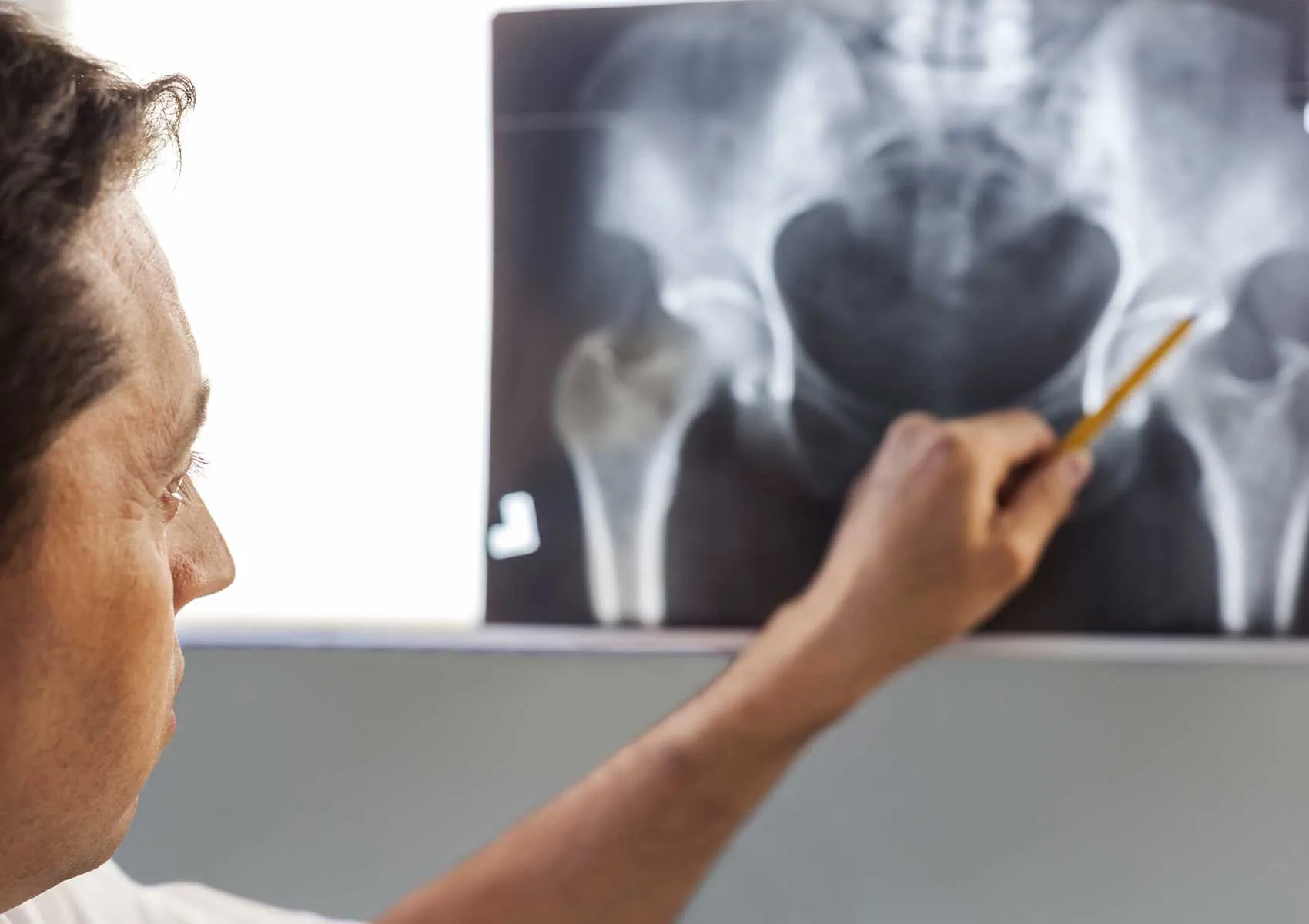Early Signs of Hip Impingement Syndrome
What are the early signs of hip impingement syndrome? Learn about groin pain, hip clicking, and mobility loss — and when to seek orthopedic care.
Hip pain is a common issue with many possible causes. However, in young and active individuals — especially athletes — one of the significant sources of hip discomfort is femoroacetabular impingement (FAI) syndrome. This condition results from anatomical mismatch in the hip joint, leading to soft tissue damage during movement. Early diagnosis is critical to prevent progression to cartilage degeneration and arthritis. In this article, we’ll examine the early signs of hip impingement syndrome, who is at risk, and how it can be detected.
What Is Femoroacetabular Impingement (FAI)?
FAI occurs when there is abnormal contact between the femoral head and the acetabulum. There are three main types:
- Cam type: A bony bump on the femoral head-neck junction
- Pincer type: Excessive bone coverage on the acetabulum
- Mixed type: Combination of both cam and pincer types
These abnormalities cause repetitive trauma to the labrum and cartilage during hip motion, potentially leading to labral tears and early osteoarthritis.
Early Symptoms of Hip Impingement
Identifying subtle early signs is key to timely diagnosis and effective treatment. Symptoms usually begin gradually and worsen over time.
1. Groin Pain
The most common early sign is deep, vague groin pain that:
- Is triggered by prolonged sitting, stair climbing, or bending
- Improves with rest but returns with activity
- Becomes sharper and more localized over time
This symptom is often misattributed to muscular strain or hernias, delaying accurate diagnosis.
2. Clicking or Locking Sensation in the Hip
Patients may report a feeling of “clicking,” “snapping,” or “catching” in the hip during movement:
- Especially noticeable with internal/external rotation
- Often related to labral irritation or tear
- May be painful or accompanied by reduced mobility
Such sensations are red flags for labral pathology.
3. Loss of Hip Flexibility
Loss of motion is typically seen in specific directions:
- Flexion (bringing the knee toward the chest)
- Internal rotation
- Adduction (moving the leg inward)
This limitation:
- May be noticed during sports or stretching
- Reduces performance in dancers, soccer players, martial artists
- Can be detected with the FADIR test during physical examination
4. Referred Pain to Outer Hip, Thigh, or Knee
Pain may not always be localized to the groin. Some patients experience:
- Pain radiating to the outer hip or anterior thigh
- Knee pain without obvious knee pathology
- Occasional numbness or burning if nerves are irritated
This can be mistaken for lumbar disc problems or bursitis.
5. Pain When Rising After Sitting
A telltale sign is discomfort when standing up after sitting for a long period:
- Common in drivers and desk workers
- Described as a stabbing or sharp pain in the front of the hip
- Improves with movement but recurs with inactivity
It indicates dynamic impingement during hip flexion.
Who Is at Risk?
FAI can occur in anyone but is more common in certain populations:
- Athletes: Soccer, hockey, ballet, martial arts
- Individuals with childhood hip disorders (e.g., dysplasia)
- People with family history of hip problems
- Occupations with repetitive squatting or hip rotation
- Young adults with persistent groin pain
Understanding these risks can facilitate early screening and preventive strategies.
When to See a Doctor
You should consult an orthopedic specialist if you have:
- Groin pain lasting longer than 4 weeks
- Reduced hip range of motion
- Snapping or locking hip sensations
- Decreased sports performance
- Suspicious findings on X-ray or MRI
Timely diagnosis can allow for non-surgical interventions before permanent damage occurs.
FAQ
-
Where is pain from hip impingement felt?
Usually in the groin, but it may radiate to the outer hip, thigh, or knee.
-
Is this condition sport-related?
Yes, repetitive hip motion and rotation in sports can contribute to FAI in those with structural predispositions.
-
Are hip clicking sounds normal?
Occasional clicks can be benign, but persistent or painful snapping may indicate labral damage or impingement.
-
Can early diagnosis prevent surgery?
Absolutely. With early detection, physical therapy and lifestyle changes can delay or eliminate the need for surgery.
-
What happens if FAI progresses untreated?
Progressive labral tearing and cartilage damage may lead to early hip osteoarthritis.

